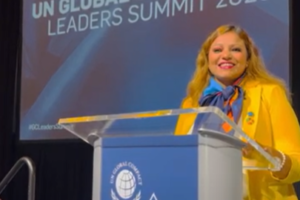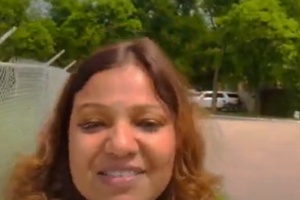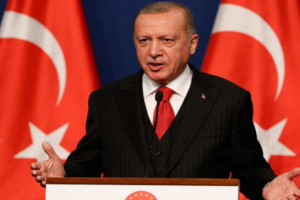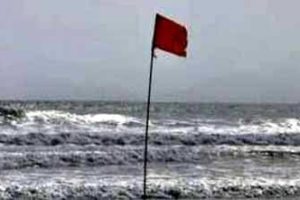MPs have set out details of their plan to consider other Brexit options, as Theresa May was warned more ministers could quit unless she changes course.
The Commons will begin voting on alternatives on Wednesday, in a process likely to continue into next week.
MPs will fill out a series of ballots testing support for different ideas.
Ex-minister Alistair Burt said the PM must recognise a “different answer” was now needed but ex-Brexit secretary David Davis warned of impending chaos.
As MPs seek to take the initiative from the government, there are signs that some Tory opponents of Mrs May’s deal could be steeling themselves to back it if it returns to the Commons for a third time later this week.
Prominent Brexiteer Jacob Rees-Mogg indicated that he could be persuaded, given it now appeared to be a choice between her deal and no Brexit at all.
Ex-Foreign Secretary Boris Johnson told the BBC there was “no point” supporting Mrs May’s deal “without any sign the UK is going to change its approach in phase two” of the negotiations – otherwise he feared the country would be indefinitely tied to the EU’s rules.
But BBC political editor Laura Kuenssberg said the not very subtle subtext of Mr Johnson’s remarks was “if the PM promises to go soon, then she might get my vote.”
MPs took the unprecedented step of voting to seize control of the parliamentary timetable on Monday, in an attempt to end the deadlock over the terms of the UK’s exit.
Groups are now putting forward a variety of different options for the UK’s future relationship with the EU.
Several of these are based on the assumption that the existing withdrawal agreement with the EU will be approved, albeit with changes to the controversial Northern Ireland backstop.
Others call for a basic free trade agreement with the EU and another referendum on whether Brexit goes ahead. It will be up to Commons Speaker John Bercow to decide what is voted on.
What are some of the options?
Customs union: This calls for the UK to negotiate a new customs union with the EU immediately after it leaves.
Common Market 2.0:The UK would remain in the single market by rejoining the European Free Trade Association (EFTA) and staying in the European Economic Area (EEA). A “comprehensive customs partnership” would replace the Irish border backstop plan. It would accept continued freedom of movement but with conditions.
EFTA and EEA: The UK would rejoin EFTA and sign up to existing EEA rules and obligations but make them enforceable through the UK courts. Rejects any customs union with the EU, instead seeking agreement on new arrangements for Northern Ireland.
Malthouse compromise plan A: Mrs May’s withdrawal deal but without the backstop, which would be replaced by alternative arrangements.
Another referendum: The public would vote on any Brexit deal which is passed by Parliament before it is ratified.
Revoke Article 50: If the government has not passed its withdrawal deal, MPs would vote on a no-deal Brexit two days before the UK’s leaving date. If MPs reject no deal, the prime minister would have to cancel Brexit altogether.
According to a copy of a business motion released by Labour’s Hilary Benn, there will be about five hours of debate on different options.
Voting by paper ballot will take place at about 19:00 GMT, with the results announced by Mr Bercow later that evening.
The process is likely to continue on Monday as MPs seek to whittle down options which could command majority support in Parliament.
The government has until 12 April to propose a different way forward to the EU if it cannot get the current agreement through Parliament.
There is a very strange mood around the place in Westminster, ahead of what could be a very messy and tricky day tomorrow.
MPs will spend much of Wednesday voting on different versions of Brexit. But the government is even at odds with itself over whether they should be given free rein to do so.
One source told me 19 ministers are ready to quit if they aren’t allowed to have their say, which could, hypothetically at least, collapse the government itself.
Mr Burt, one of three ministers who quit on Monday to back the so-called “indicative votes” plan, said he still backed the prime minister’s deal but she had a duty to look at other options.
“My advice to the prime minister would be to recognise that her duty now is perhaps to find a different answer than the one she has tried to find,” he told Laura Kuenssberg.
But David Davis said the PM’s deal was better than the alternatives and had a “decent chance” of getting through Parliament if put to the vote again.
“It’s not a good deal but the alternative is a complete cascade of chaos,” he said. “You are seeing proposals being put up which are all worse than hers.”
The PM has signalled she will try to bring her deal, which has been heavily rejected twice, back to the Commons for a third time later this week but only if she believes she can win.
The Democratic Unionists, whose 10 MPs prop up Mrs May’s government, urged Tory MPs to “stand firm” in their opposition unless there were “significant changes”.
What’s happening this week?
Tuesday: Theresa May met her cabinet. Tuesday had been considered as a possible day for the so-called third meaningful vote on Mrs May’s withdrawal deal. But, on Monday, the PM said the deal did not have enough support to get through the Commons “as things stand”.
Wednesday: This is when indicative votes will be held – we don’t know yet whether MPs will be free to vote how they want or be directed along party lines. The prime minister is also due to address the 1922 Committee of Conservative backbenchers. MPs will also vote on changing the Brexit date in UK law from 29 March.
Thursday: A possible opportunity for meaningful vote three. The prime minister may hope that Brexiteers will finally decide to throw their weight behind her deal.
Friday: This is written into law as the day the UK leaves the EU, although the PM has said she will pass legislation this week to remove it. The earliest Brexit is likely to happen is now 12 April.





















